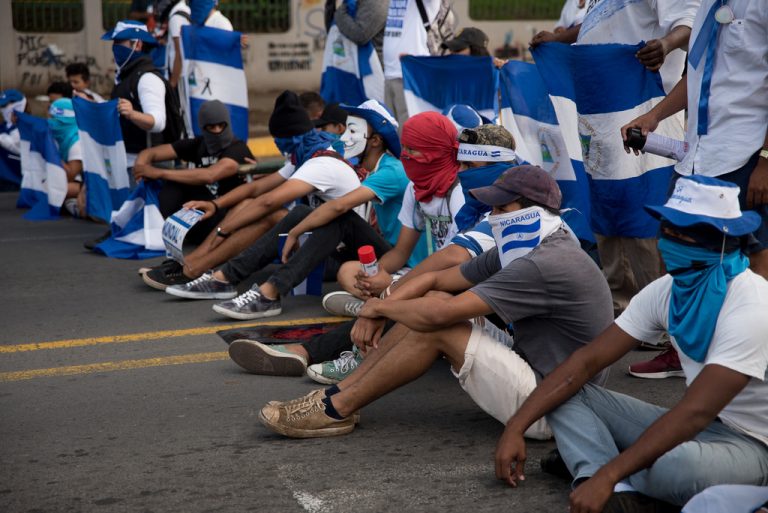25 de noviembre 2018

Children of Exile: The Births “Sowing Hope” in the Camp of Nicaraguan Farmers

PUBLICIDAD 1M
PUBLICIDAD 4D
PUBLICIDAD 5D
At least 46 women, 28 minors and 3 transsexual women are among the political prisoners of the Ortega and Murillo regime.

Mothers of protesters who have been arrested during Nicaragua’s sociopolitical crisis reported that there are at least 610 political prisoners in Nicaragua.
Among the inmates are 46 women, 28 minors and 3 transgender women, according to the preliminary report, distributed this Thursday by the organized women.
According to the report, 458 of the “political prisoners” face judicial processes, of which 62 have already been convicted.
So far the number of persons captured after participating in protests against the Government of President Daniel Ortega have risen to 602, according to the Nicaraguan Center for Human Rights (CENIDH).
The protesters who are imprisoned are considered “terrorists,” “coup mongers” and “common criminals,” by the Government of Nicaragua, which itself only recognizes 273 inmates in total.
The Nicaraguan Center for Human Rights (CENIDH), on the other hand, filed an appeal against the regulations of the Financial Analysis Unit Law (UAF), considering it unconstitutional, while seeking to “control and destroy” the work of non-governmental organizations in Nicaragua.
“It is a partial appeal, against some articles that attribute interfering and disproportionate functions to the UAF to look for ways to control and destroy the work of nonprofit civic organizations,” the President of CENIDH, Vilma Nunez, told journalists.
According to the recently approved regulations, nonprofit organizations have until December 3rd to register with the UAF and present all their administrative and financial activities, as well as the origin and destination of the funds they receive, under penalty of temporary sanctions and definitive suspensions.
A violation to the rules of the UAF could cause NGOs to fall into violations of the “Law against the laundering of assets, financing of terrorism and financing of the proliferation of weapons of mass destruction,” applied to people who oppose the Government of President Daniel Ortega, recalled the CENIDH.
The appeal was filed before the Supreme Court of Justice (CSJ) by a group of nine CENIDH activists, led by Nunez, who stated that the government’s objective is to “institutionalize, with these powers, a legal persecution.”
Archivado como:
PUBLICIDAD 3M
Confidencial es un diario digital nicaragüense, de formato multimedia, fundado por Carlos F. Chamorro en junio de 1996. Inició como un semanario impreso y hoy es un medio de referencia regional con información, análisis, entrevistas, perfiles, reportajes e investigaciones sobre Nicaragua, informando desde el exilio por la persecución política de la dictadura de Daniel Ortega y Rosario Murillo.
PUBLICIDAD 3D